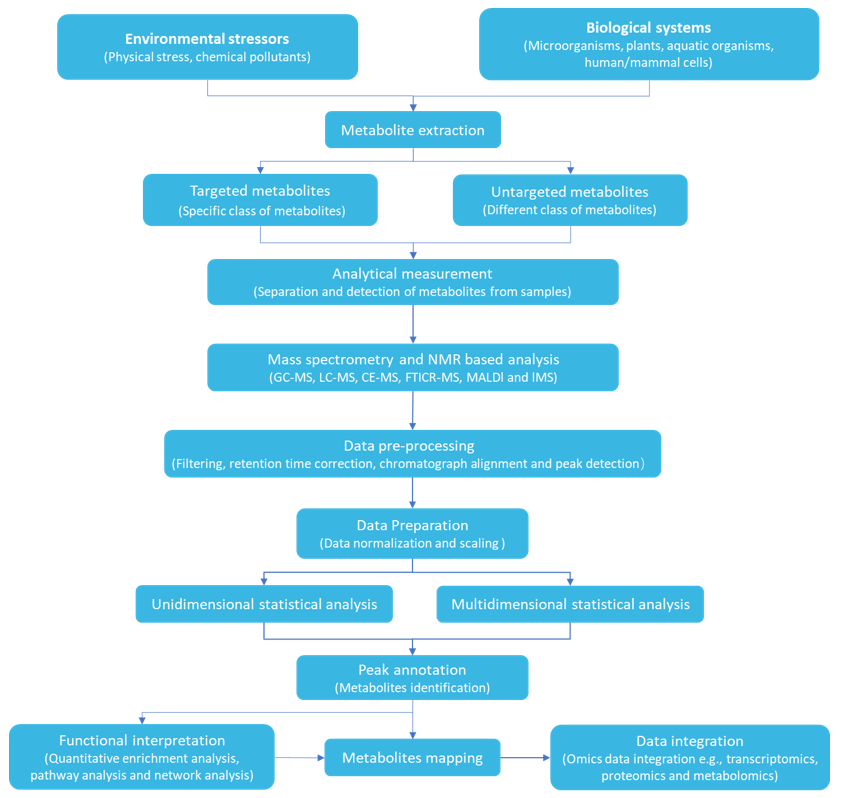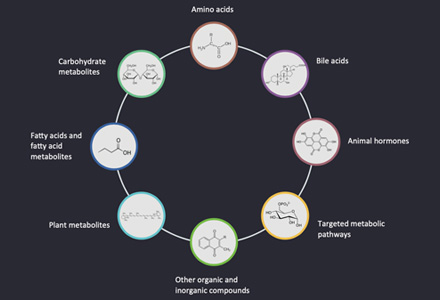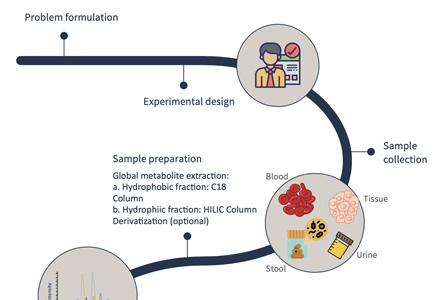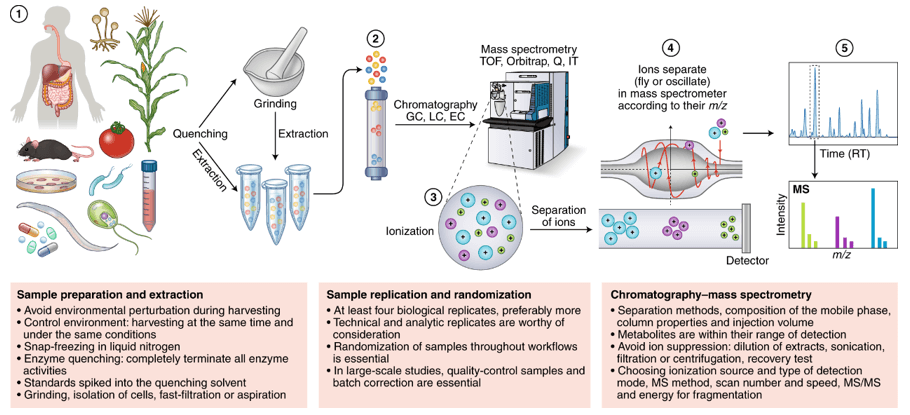Ecological Metabolomics Solutions
Creative Proteomics provides metabolomics solutions for ecological research, analyzing the metabolomic level of an organism in response to environmental changes or interpreting the metabolite level of an organism in a metabolic pathway in response to environmental changes, exploring the ecological processes and functions of various biotic and abiotic factors and complex interactions in ecosystems, helping to gain insight into the mechanisms of species interactions and synergistic evolution, and deepening the understanding of biological evolution and the functioning of ecosystems.
Metabolomics Solutions for Ecological Research
By Biological Hierarchy

Individual ecological studies
Monitoring the non-pathological metabolic response of organisms to environmental changes, the results of which can be used as an early warning signal before the destruction of the ecosystem in question. For example, analyzing the reproductive health effects of trace organic pollutants in the environment on organisms.
To study the response of individual organisms to non-chemical environmental factors such as climate and food. For example, analyze the adaptive response of wild-type Arabidopsis (Arabidopsis thaliana) to high intensity UV irradiation at the metabolite group level.

Population ecology studies
Metabolic profiling enables the identification and classification of species without significant phenotypic differences, and the analysis of the interaction between genetically modified plant populations and the environment in which they live.

Community ecology studies
Analysis of small and large number of macromolecular metabolites in soil to understand the relationship between microbial populations and plant apoplast fractions. While specific metabolic markers can be used to indicate predator-prey relationships and energy flows between producers and consumers, it is still difficult to find small metabolic level changes within communities in a completely open natural environment. Metabolomics technology enables real-time high-throughput analysis of metabolome in environmental samples with continuous spatial and temporal variation, providing a convenient way to study the ecology of microbial communities.
By the taxon studied

Animal Ecology Research
Metabolomics techniques are used in conservation ecology studies in both wildlife and captivity such as zoos and laboratory animals, mainly covering metabolic trajectories, population health and nutrition.

Plant ecology research
The study of plant response mechanisms to abiotic environmental factors and the search for coupling mechanisms between specific environmental stresses and adaptation patterns. Primary metabolite analysis can be used to assess the effects of environmental stress on plant metabolism, to trace the metabolic pathways of a compound or class of compounds in a particular biosynthesis/degradation or to classify plant samples. Secondary metabolite analysis can be used to study plant stress resistance and quality, which can help in breeding and germplasm improvement.

Microbial ecology research
Identify and quantify the structure of microbial communities and their ecological functions in complex ecosystems and analyze the mechanisms of microflora-environment interactions.
The Process for Metabolomics Analysis Services

Technology Platform for Metabolomics Analysis
Multiple analytical platforms, including GC-MS, LC-MS, UPLC-MS.
| Chromatography | Mass Spectrometry |
GC (Q Exactive) (- mode MS)
HPLC: HILIC (+/- mode MS)
HPLC: RP C18 (+/-mode MS)
IC (- mode MS) | Q Exactive MS
Orbitrap Tribrid MS |
Creative Proteomics is a good partner in the environmental science field and has extensive experience in metabolomic analysis. We provide metabolomics solutions for ecological research to accelerate the exploration of new scientific horizons. If you would like to learn more, please contact us. We look forward to working with you.
For Research Use Only. Not for use in diagnostic procedures.











